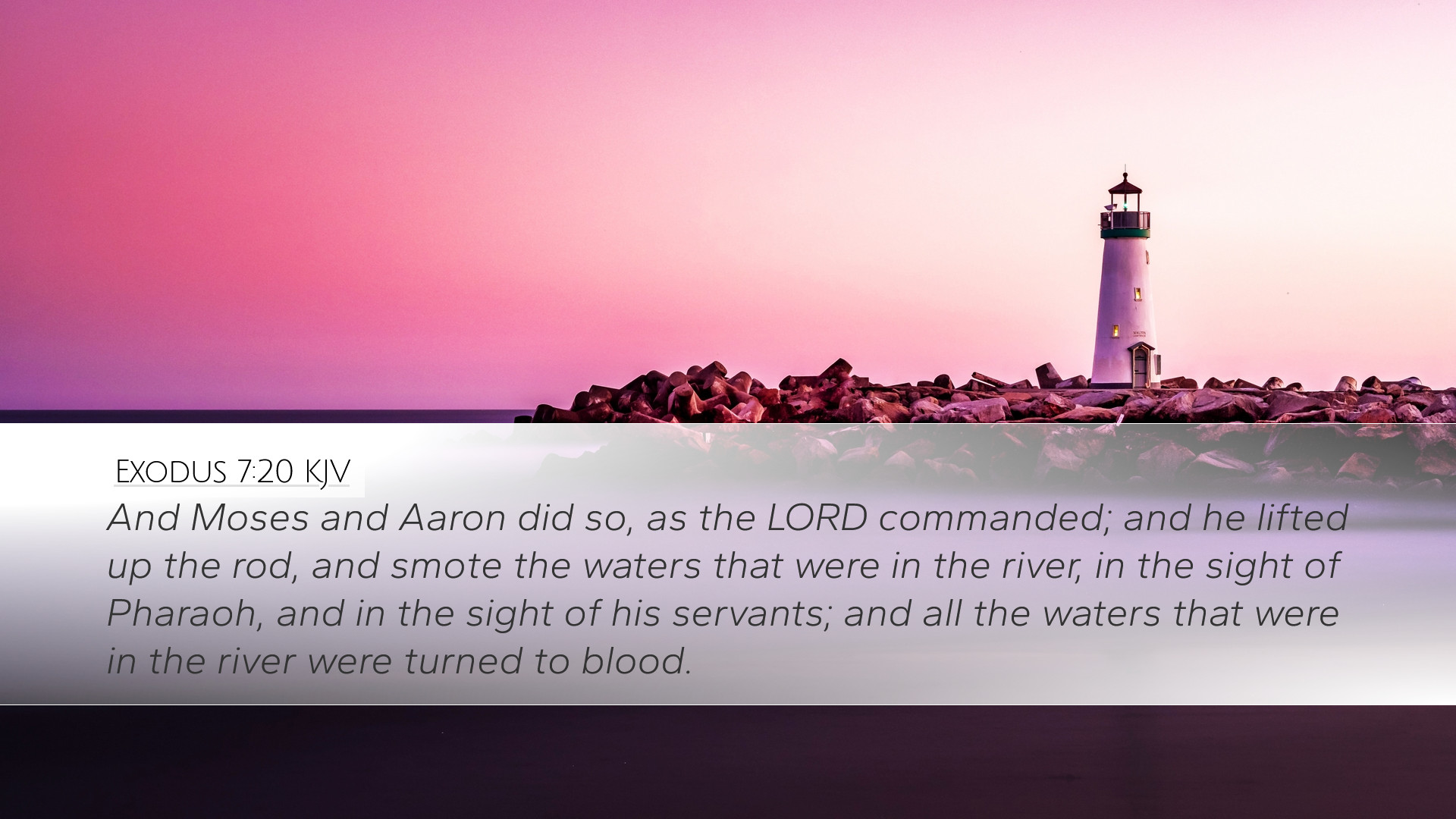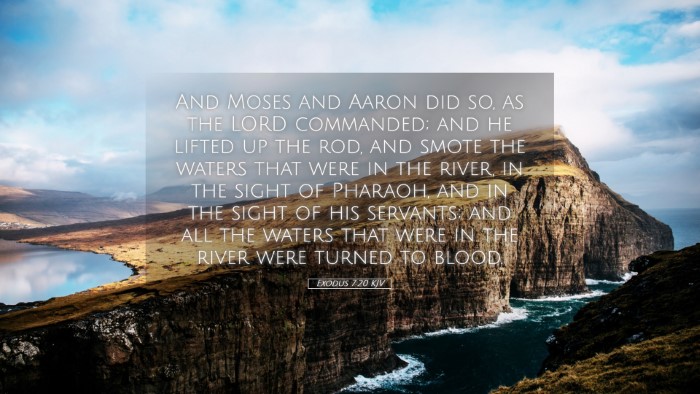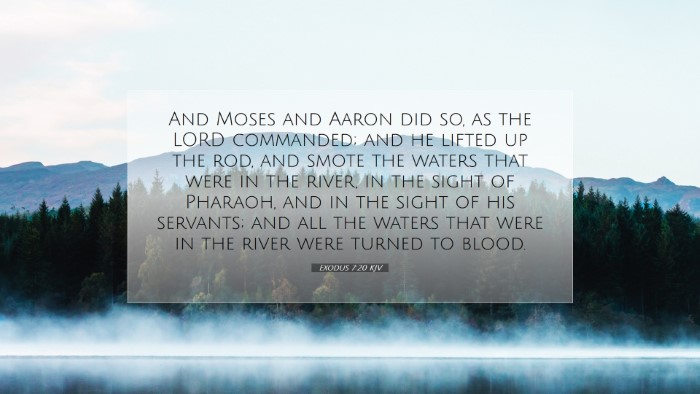Commentary on Exodus 7:20
Exodus 7:20 reads: "And Moses and Aaron did so, as the LORD commanded; and he lifted up the rod, and smote the waters that were in the river, in the sight of Pharaoh, and in the sight of his servants; and all the waters that were in the river were turned to blood."
Contextual Overview
This passage marks a critical moment in the narrative of the Exodus, showcasing God's power through the miraculous signs performed by Moses and Aaron. The transition from the peaceful coexistence of Israel in Egypt to the impending judgment upon Pharaoh embodies both the physical and spiritual aspects of Israel's liberation.
Commentary Insights
Matthew Henry's Commentary
Divine Command and Obedience: Henry emphasizes the importance of obedience to God's command. Moses and Aaron's prompt action illustrates the necessity of adhering strictly to divine instructions. Their obedience is not merely ritualistic but serves to reinforce their role as instruments of God's will.
Symbolism of Water: The act of striking the water symbolizes judgment and transformation. Henry suggests that water, often associated with life and nourishment, is utilized here to demonstrate God's sovereignty over creation. The turning of water into blood serves as a stark reminder of the consequences of sin and rebellion against God.
Albert Barnes' Notes
Visible Evidence of God's Power: Barnes notes that the visible transformation of the Nile is intended to serve as a powerful testimony to both Pharaoh and the Israelites. This miraculous event is a clear sign of God's authority over the land of Egypt, challenging the Egyptian gods associated with the river.
Pharaoh's Hardening Heart: Barnes remarks on the recurring theme of Pharaoh's hardening heart. Despite witnessing such powerful acts of God, Pharaoh's obstinacy reveals a deeper spiritual blindness. This motif serves as a cautionary tale for both leaders and followers regarding the peril of rejecting divine truth.
Adam Clarke's Commentary
The Role of Moses and Aaron: Clarke points out that Moses and Aaron must work in tandem, highlighting the leadership structure ordained by God. Their collaboration signifies the unity in leadership and the necessity of working together in fulfilling God’s purpose. Clarke stresses that their coordinated effort is critical in the unfolding events of deliverance.
Consequences for Egypt: Clarke further interprets the significance of the Nile turning to blood as a pronounced judgment on Egypt. The Nile represents not only sustenance but also the religious framework of Egyptian civilization. The blood symbolizes death and destruction, juxtaposing life with the consequences of apostasy.
Theological Themes
- God's Sovereignty: The transformation of water into blood underscores God's ultimate authority over nature and human affairs.
- Judgment against Idolatry: The plagues serve as a direct challenge to Egyptian deities, particularly the Nile's role in their worship.
- Faith and Doubt: The response of Pharaoh emphasizes the tension between faith and doubt. Leaders are called to discern spiritual truths amidst worldly pressures.
- Preparation for Deliverance: This event is part of God’s preparation to deliver Israel from bondage, highlighting the path from oppression to freedom through divine intervention.
Practical Applications
The lessons from Exodus 7:20 resonate with contemporary believers:
- Obedience to God: Just as Moses and Aaron obeyed God's command, modern Christians are called to live obediently and trust in God's sovereignty.
- Recognition of God's Authority: Acknowledge that God reigns supreme over all creation. Each act of nature reflects His presence and majesty.
- Caution Against Hardening Hearts: Reflect on the nature of one’s heart before God. Avoid the pitfalls of pride and rebellion that can lead to spiritual blindness.
- Unity in Leadership: The collaboration of Moses and Aaron encourages teamwork and unity among church leaders and community members in fulfilling God’s mission.
Conclusion
The events surrounding Exodus 7:20 are foundational for understanding both the narrative of the Exodus and the larger biblical theme of redemption. The transformation of water into blood illustrates God's power and the seriousness of rejecting His authority. Through careful compliance with divine commands and recognizing signs from God, believers today are reminded of their own journey of faith and the call to embrace God's sovereign plan.


